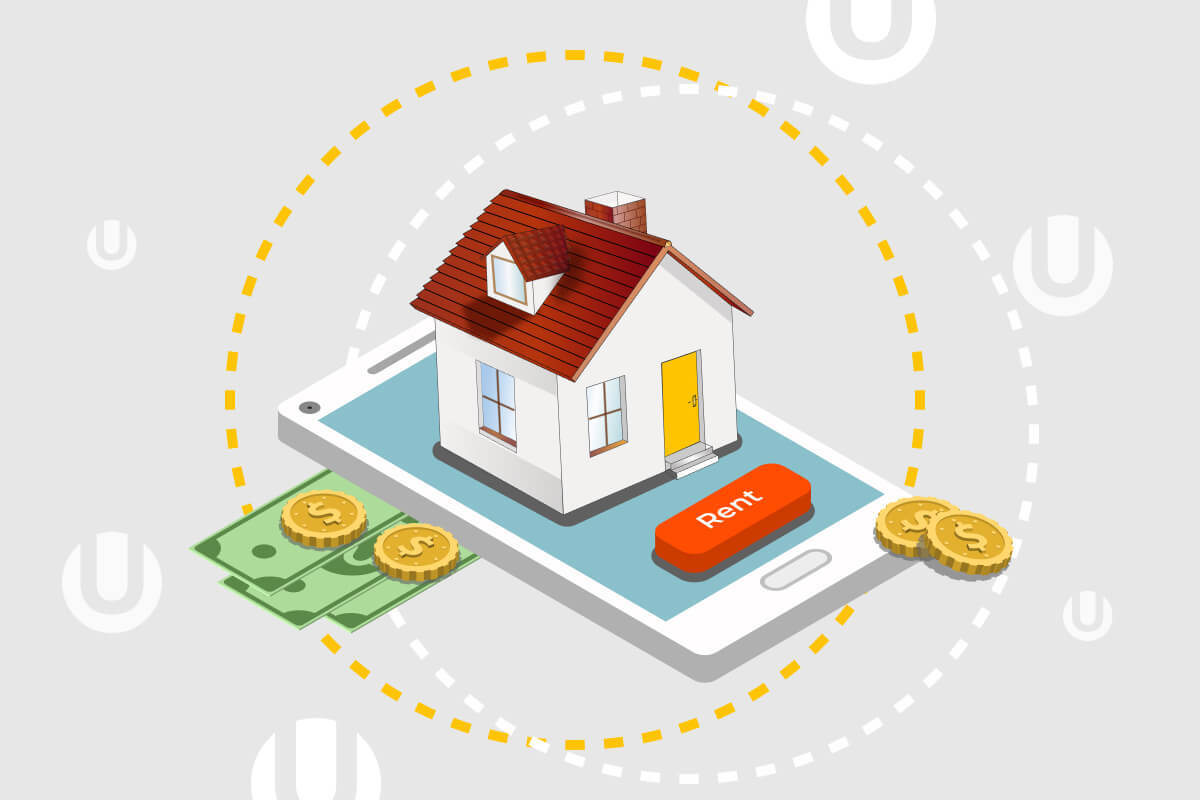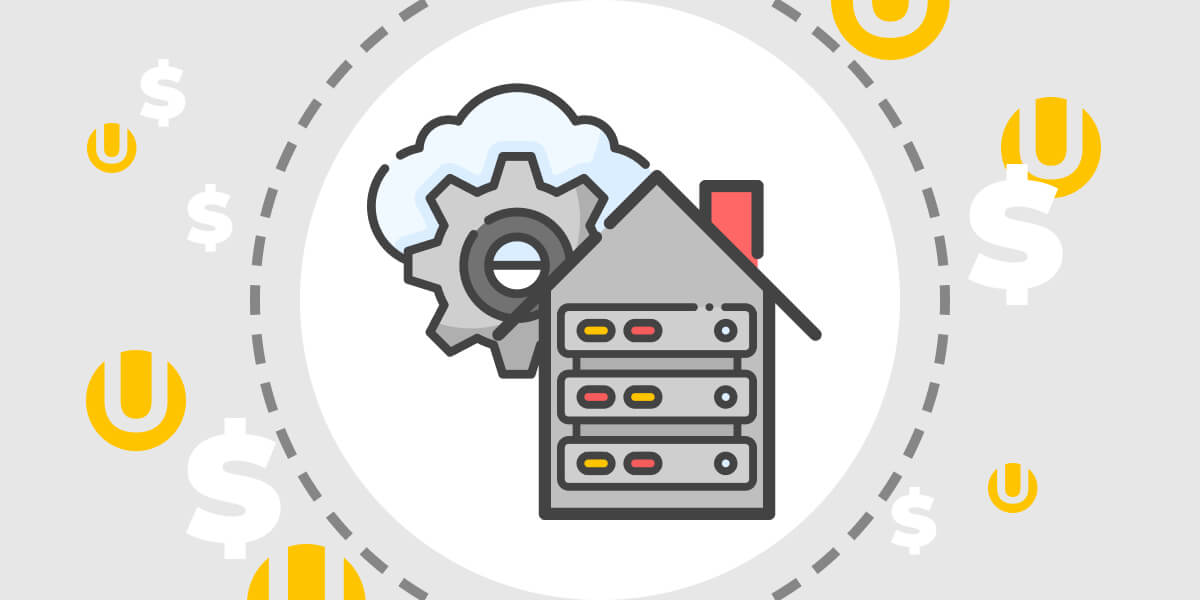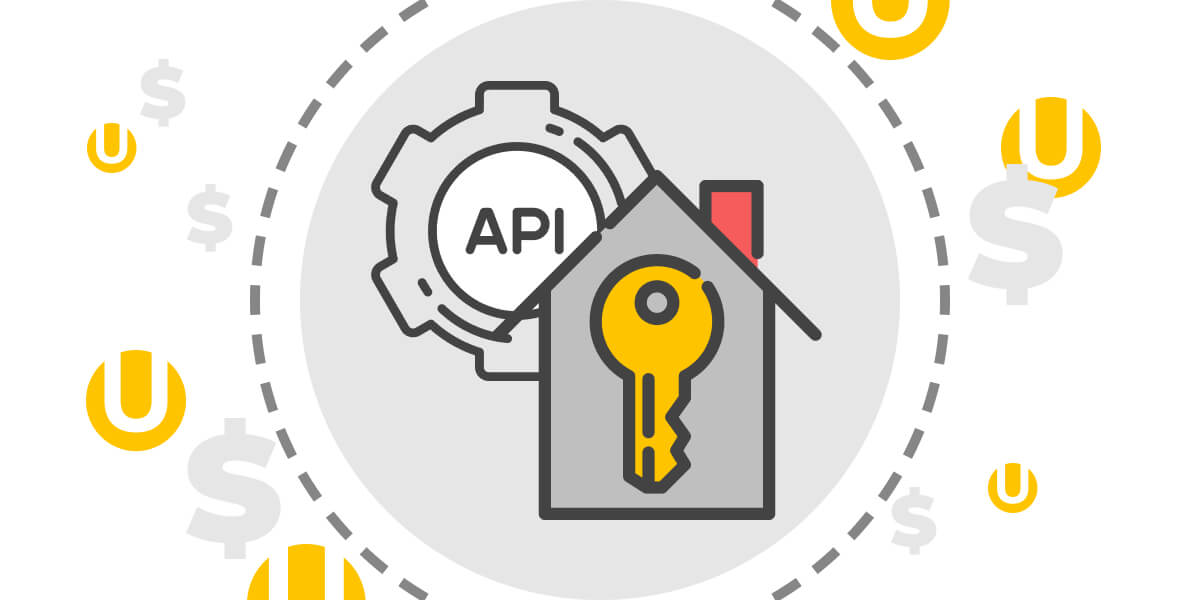What is the best platform for a real estate website? Check out our compilation of top platforms and the top features you need on your site! We’ve researched the best real estate website builders for everyone.
1. What should a good real estate website have?
Real estate website development is a modern IT solution that allows you to automate the sale and purchase of the real estate. This website will allow your company to reduce marketing and promotion costs.
As a rule, the real estate agency is a multi-page website. It can be a simple project or a complex one that implements links between a database of houses, realtors, and clients.
There must be a real estate catalog with:
- descriptions,
- terms of cooperation,
- services,
- prices,
- feedback form and other types of contacts.
And it would be an advantage to have a good blog that will help expand the base of critical phrases and provide helpful information to potential clients.
The quality of photographs plays a huge role too. If the website is small, you need to provide the most interesting offers to attract customers more effectively than others. If you have several realtors, you need to specify contacts for each of them so that the person can choose among them.
The website’s design is an essential factor – it should be modern, pleasant, and straightforward. Your home page and the header should attract attention and motivate your users to continue exploring the website.
2. What software do real estate companies use?
Today the real estate companies are dealing with a challenging time keeping accurate business operations in the time of a pandemic.
Real estate management software can solve many problems. Its effectiveness usually depends on your business goals and the ways you are going to achieve them.
If the agency works with a small volume of data, it usually has no data storage and systematization problems. It is much more difficult for companies that process dozens or even hundreds of requests a day. It’s even harder to find suggestions for a customer request quickly.
But if the agency knows how to quickly process the data of landlords and sellers, as well as respond promptly to requests from tenants and buyers, this is a success. That’s why realtors and real estate business owners turn to real estate management software and systems.
2.1 How Do Real Estate Websites Get Data?
When developing a site for realtors, developers try to consider all the problems for SEO promotion. The software for real estate website offers such CRM options of getting and transferring data:
- a single customer base with a complete history of interaction;
- application and transaction system which shows the entire timeline of work;
- real estate accounting program with automatic selection of objects at the request of the client;
- software for downloading advertising on real estate websites;
- visual reports on the data and amount of transactions, new programs, calls and meetings, distribution of sales funnel transactions, etc.
- program for real estate sales and rental accounting;
- tools for automatically sending text messages to customers;
- real estate phone number processing program that integrates with phones and stores call records;
- KPI task control and monitoring system for employees;
- work automation tool: CRM generates documents based on a template, sets tasks, reminds calls and deadlines.
3. How much does a real estate website cost?
The first question that arises when you want to create a real estate website is price and timing. There is no precise answer, as the cost depends on various factors and ranges between $500 to $1,500. Additional functionality can significantly influence the price of the development.
If you decide to make a real estate website with various functions and multiple integrations, then the cost of development will be between $8,000 to $25,000.
The cost of the website is affected by:
- Location
In this stage, you need to decide whether you will concentrate in a small area or are ready to conquer the international market.
- Profile
It means you need to determine the specialization of your online real estate platform. Either the site simply sells the services of a real estate or construction company, or it works as a large information web portal in addition to this feature. The costs of developing landing and multi-page sites are significantly different.
- Support and Maintenance
It is the form of feedback with the client and further promotion in the network and timely update of information. Every company has its hourly rate for support services. While the prices for the support and maintenance services in the US are $80 to $200 per hour of work, in Europe, the same services can cost $20 – $40 per hour. If you are going to update the product often, it’s better to research the prices carefully. - Web design
The cost of developing one mockup of a real estate platform will range from $50 to $230. Designing a home page requires more time and costs between $100 – $200. The price for the other pages can range from $50 to $140.
The use of templates can reduce the cost to $60-80. But it usually leads to developmental changes in further states and can bring additional charges later.
- Coding
Coding is the most time-consuming part that demands most of the expenditures. The more modules you like to include on your website, the higher price you can get.
The coding of a simple real estate website with minimum functions for a small company can cost between $500 and $1,500, while the average cost of a real estate website with additional functions and a high level of security ranges between $8,000 and $25,000.
4. What should your real estate website look like?
When creating real estate websites, some features can be crucial for the potential user. These can be factors that make a person stay on your website as long as possible. Therefore, while creating such a website, you need to understand what factors will be vital in attracting a person’s attention and making him use your company’s services.
Here are the factors that help your real estate website to look good:
- The functional design.
When it comes to cross-browsing, your website should look the same in all browsers. Do not scare the user with mistakes in layouts and design.
- Clear and simple design.
You need to understand that a person must intuitively guess where to click to get the necessary information. It is more accurate for website navigation elements. You can put all the information you need while fitting it into 20,000 characters. For a person looking for a house, cottage, apartment, etc., there is no need for long descriptions; the client usually needs to see the appropriate option and contact information. Therefore, the real estate website needs to be clear in terms of the presentation of information.
Based on these factors, we have compiled a selection of must-have elements of your real estate website design:
- Call to action on the first screen
- Callback form
- Mandatory information
– Location
– Contacts
– Infrastructure
– Rental terms
– Documentation
– Mortgage terms - Convenient communication channels
- Filter by parameters
- Lead collection form
- Benefits
- Visualization
- Trustworthy information
- Photos and videos of the construction progress
- Promotional offer
- The price:
– indicating the price for economy class housing and average cost;
– not indicating the price for premium housing.
When developing the structure and the design of the real estate website, it is necessary to focus on the type of website, the business of the company, and the purpose of the resource. But your target audience should still be your primary focus. After its analysis, you will have a clearer vision of the elements to emphasize.
5. The 5 best real estate website builders
If you want to create a great real estate website yourself, we assure you that it’s quite possible. There is a simple solution – a website builder. Today you can find all ranges of real estate website builders on the market. But there are some of them that we can recommend.
5.1 Upplabs
Upplabs is a custom real estate software development builder that transforms analog real estate to digital.
It offers:
- a real estate platform development,
- property management system,
- custom CRM platforms,
- MLS integrations,
- vendor management software,
- existing services maintenance and modernization
The benefits of Upplabs are a data-based approach, solid-tech expertise, RETS, PCI-DSS, PA-DSS compliance, data transparency, and commitment.
5.2. Wix
Wix is a functional and flexible website builder that offers a wide selection of templates.
Among the features are:
- A very friendly interface.
- It’s free, with paid tariff plans starting from $ 4.50/month.
- Integrations with Google Analytics, MailChimp, Google Tag Manager, Hello Bar, Crazy Egg (A / B tests), Wisepops, CallRail, social networks.
- It is suitable for creating portfolio websites for professionals and small business companies, and personal sites.
Pros:
- One of the most functional editors.
- Convenient and clear administration panel.
- Large selection of templates on various topics, as well as the ability to create your own.
- Ability to create both HTML5 and flash-site.
- Allows you to create pages for Facebook.
Cons:
- Not all designs are adaptive.
- You can’t change the selected design in the future.
- SEO and analytics tools are available only at premium rates.
- In general, a large number of tools in the settings can cause difficulties.
- Only the most expensive plan involves creating an online store.
- You have to wait for a response from the technical support team.
Price:
- There is a free version.
- The base plan (domain only) is $ 4.50 / month.
- Combo (personal) – $ 8.50 / month.
- Unlimited (for entrepreneurs and freelancers) – $ 12.50 / month.
- VIP (priority support) – $ 24.50 / month.
- Business Basic – $ 17 / month.
- Business Unlimited – $ 25 / month.
- Business VIP – $ 35 / month.
5.3. uKit
uKit is a unique platform that allows you to create a website in a browser, and the cloud server stores all the results.
Among the features are:
- Integrations with Google Maps, Google Console, Google Analytics, PayPal, Facebook, Stripe, Instagram, Squarespace.
- The builder offers a large selection of ready-made font pairs, which are an essential aspect of the website pages design.
- For SEO promotion, the developers offer a built-in wizard, which determines the site’s readiness for promotion.
Pros:
- Ease of use.
- Accessible interface.
- The designs are mobile responsive.
- Constant SEO promotion of the Internet resource.
- Availability of analysis of the website.
- Free SSL certificate.
Cons:
- The lack of functionality.
- The price doesn’t cover email forwarding.
- The backup appears only every week.
Price:
- Free version
- Premium – $4/month
- Premium Plus – $8/month
- Pro – $12/month
5.4. Site123
Site123 is an exciting and straightforward builder that helps beginners eliminate unnecessary complex elements and concentrate on the type of website they will work on.
Among the features are:
- Ideal for beginners who need to create a business card website, landing page, blog, or online store.
- Integrations with GoogleSheets, Gmail, Slack, ActiveCampaign, ShipStation, GoogleCalendar, MailChimp, Sendinblue, Constant Contact.
Pros:
- Large selection of templates and modules with individual settings.
- Integration with third-party services and social networks.
- A set of tools to promote the site.
- Immediate support in online chat.
- Ability to create multilingual sites.
- Simple editor interface and high speed.
Cons:
- Advertising in the free version.
- The price policy is not very clear. Different pages list different prices for joining a domain.
- Low bandwidth – only 5GB, which is not enough for a promoted site.
- Very simple design templates and not enough settings for advanced users.
Price:
- There is a free version.
- Premium is – $9.8/month for annual or $14/month for monthly payments.
- Suitable for small businesses rather than individual users.
5.5. Ucraft
Ucraft is a popular website builder that provides premium templates for creating online resources.
Among the features are:
- The basis of the builder is a visual editor with drag-and-drop support.
- This website builder not only creates Internet resources but also enables the creation of logos.
- The website service provides a built-in application for SEO-optimization of the Internet resource, which significantly helps the effective promotion of the website.
- The integrations with Google.Analytics, MailChimp, HelloBar, HubSpot, Jivosite, and other services.
- Free SSL certificate.
Pros:
- The website interface is intuitive.
- All changes are saved automatically.
- A huge selection of ready-made templates for websites can automatically adapt to mobile devices, tablets, and PCs.
- A secure Google Cloud hosting.
- The built-in editor of logos.
- Powerful functionality.
- An availability of SEO-optimization tools.
Cons:
- High cost of additional services.
- Minimal functionality in the free version.
- A slight delay in the work of the editor.
Price:
- A free version of up to 15 pages with limited functionality. The trial is 14 days.
- Premium is $10.00/month.
6. How to choose the best real estate website builder
The primary value of website builders is that most offer templates for a range of different industries. You choose the one that suits your business goals and add your information and images. With a website builder, you don’t have to start from scratch, and you can achieve maximum results in no time.
How to understand which real estate website builder is the best?
Before deciding in favor of the particular real estate website builder, pay attention to the following things:
- Free trial. Make sure you can try the website builder for free. Most websites offer free plans (with some restrictions) or at least can guarantee your money back. We advise you to avoid builders that require your credit card details at the review stage.
- Support. Check what support the website builder offers (e.g., phone calls, chatbot, forums, etc.). Test it before choosing a paid plan.
- Specifics of your project. Each website has its features, but there are some universal ones: the ability to customize SEO settings, responsive design for mobile devices, shopping cart, great image galleries, the ability to register users or protect pages with a password.
- Domain name. You should be able to connect domain names you purchased in other places, even if you can register a new domain directly in the website builder.
- Email accounts. If you use your website for a real estate business, you will need an email address with your domain name.
- Functionality. Check for page limits, social networking, and more. Find out what tools are available.
- Templates. In addition to a variety of options, you should pay attention to editing capabilities. Is it possible to adapt all elements or only selected ones, only the information on the page or the structure of the pages as well?
- Reliability. Learn about hosting conditions and security certificates. Also, pay attention to the history of the company. Website builders that have been around for years and are constantly growing, bring more confidence.
However, if we are talking about real estate websites that need a database for SEO promotion, you should understand that creating such a website is not easy. For such tasks, it is still worth hiring a development team.
7. What are the advantages of Upplabs in the development of real estate platforms
Since 2014 we’ve been working in Real Estate and became professionals in web & mobile development, existing product maintenance and modernization, complex device integration, technical consulting, and more.
We can help you with:
- Real Estate platform development;
- Property management systems;
- Custom CRM platforms;
- MLS integration;
- Vendor management software and more.
Our software development company works end-to-end with the clients discussing all possible scenarios and questions, starting from strategy to digital; we bring transformational outcomes. It is UppLabs’ task to show you the opportunities, needs, and threats.
Our assurance as your developer’s team includes:
- Designing and applying appropriate project management standards
- Planning and monitoring the project (timelines and budget)
- Managing project risks
- Ensuring customer satisfaction
- Organizing and motivating a project team
- Creating detailed, comprehensive, and well-structured technical documentation
- Estimating, prioritizing, planning, and coordinating testing activities
- Developing and applying development and testing processes for new and existing products to meet client needs
- Providing Discovery session
- CI/CD (Continuous Integration and Continuous Delivery)
So, you can always book a call with UppLabs and delegate the task with a value proposition to us!



